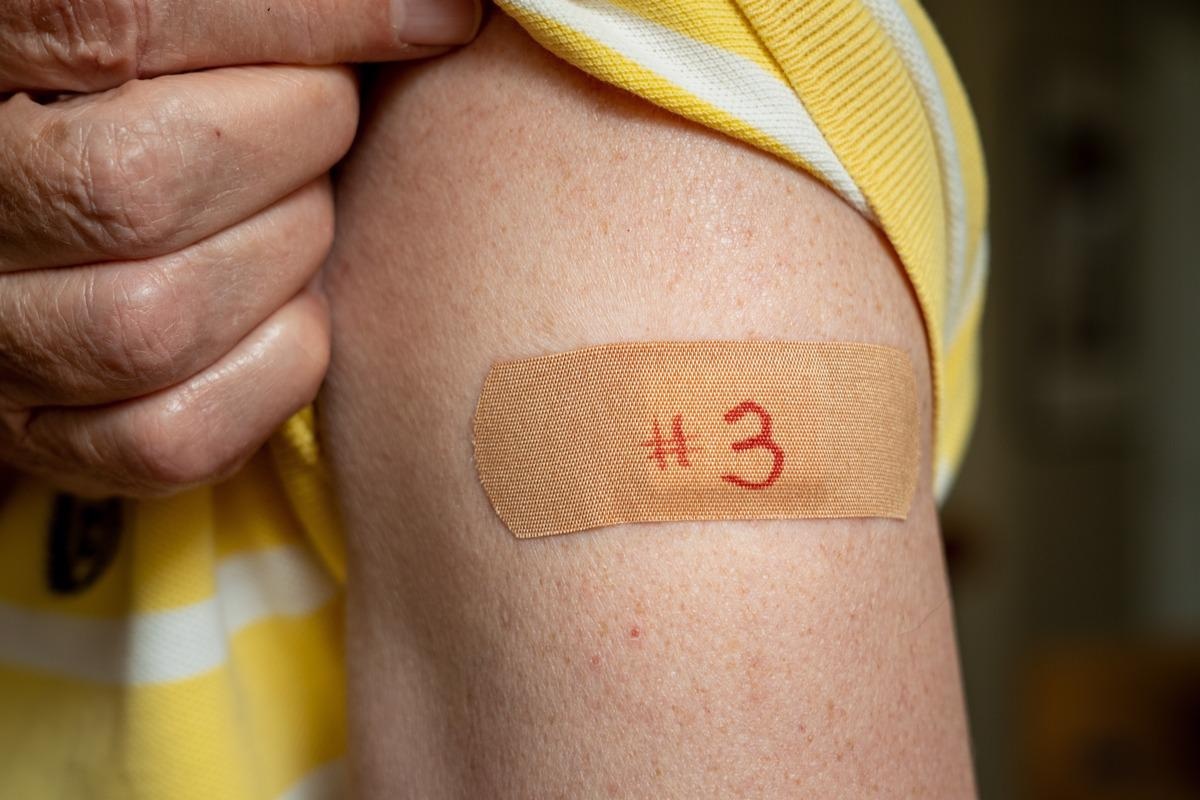In a recent study posted to the medRxiv* pre-print server, a team of researchers assessed the efficacy of booster doses of Ad26.COV2.S (Janssen) severe acute respiratory syndrome coronavirus 2 (SARS-CoV-2) vaccine.
 Study: Efficacy and Safety of a Booster Regimen of Ad26.COV2.S Vaccine against Covid-19. Image Credit: Steve Heap/Shutterstock
Study: Efficacy and Safety of a Booster Regimen of Ad26.COV2.S Vaccine against Covid-19. Image Credit: Steve Heap/Shutterstock
The unprecedented public health crisis caused by the coronavirus disease 2019 (COVID-19) pandemic requires effective and durable vaccine protection against infection and the severity of the disease. Recent studies have reported the waning efficacy of vaccines against SARS-CoV-2, thus giving rise to the need for vaccine-mediated long-term protection against COVID-19. The administration of booster doses of vaccines is hence recommended, but their effect on prolonged protection against COVID-19 related infection and hospitalization is still not fully clear.
About the study
The present study investigated the efficacy, immunogenicity, and safety of the Janssen vaccine when provided as a primary vaccine as well as a booster dose with an interval of 56 days between the two doses.
The research involved a phase 3 trial called ENSEMBLE2 which is an ongoing, double-blind, randomized, and placebo-controlled study. All individuals participating were aged 18 years and older, healthy or with stable comorbidities, and had not previously received a COVID-19 vaccine.
Participants in computer-generated random groups received a primary dose of the Janssen vaccine. After 56 days, half of the group received a booster dose while the other half were administered a saline placebo. The efficacy of the vaccine was assessed in COVID-19 cases confirmed using a real-time reverse transcriptase-polymerase chain reaction (rtRT-PCR) test or other diagnostic methods.
For the first occurrence of a confirmed COVID-19 case with the onset of infection 14 or more days after booster vaccine administration, efficacy assessments are introduced. The effect of the vaccine against moderate to severe COVID-19-related manifestations was considered as the primary endpoint of the efficiency of the vaccine. Binding antibodies specific to the spike protein collected from the sera were used to evaluate immunogenicity at different time intervals.
After each vaccination, solicited and unsolicited adverse events (AEs) were recorded for seven and 28 days respectively, or until the participants were unblinded. AEs requiring medical attention were followed up for six months after vaccination while serious AEs were followed up throughout the study.
Results
The study results showed that 53.5% of the total participants received the primary and the booster vaccine. An average follow-up period of 36.0 days after the booster dose was observed, while only 29.3% of the participants were followed up for two months or more. In the vaccinated group, less than 0.1% of participants withdrew from the study and 1.4% discontinued vaccination owing to an AE.
In the double-blind phase, there were 14 confirmed COVID-19 cases with moderate to severe symptoms within 14 days or more after booster vaccination in the Janssen group, while the placebo group reported 52 cases, indicating a 75.2% efficacy of the vaccine in preventing infection. The sequencing data of 68% of the confirmed COVID-19 cases in the double-blind phase revealed that the wild-type strain was present in 6% of the sequenced strains. Vaccine efficacy against SARS-CoV-2 variants of concern (VOC) was 81.6% overall with 94.2% for the Alpha VOC and 63.1% for the Mu variant.
In the placebo group, a total of eight severe to critical COVID-19 cases, five cases requiring medical intervention, and one COVID-19-related death, were reported. In the vaccinated group, no case requiring medical attention occurred and no COVID-19-related death was reported.
Overall, vaccine efficacy against COVID-19 infection was 51.1% while efficacy against symptomatic and asymptomatic infection was 75.6% and 34.2%, respectively. Moreover, patients with breakthrough infections had lower symptom severity, fewer symptoms, and a fewer number of cases lasting more than 28 days as compared to patients in the placebo group.
An increase of 4.2-fold and 40.5-fold was observed in concentrations of spike-specific binding antibodies from day 1 to day 29 and day 71. After primary vaccination, by day 29, the antibody reactivity rates reached 91.9% while the booster dose increased the antibody response rates to 100% by day 71.
Conclusion
The study findings showed the administration of a homologous Ad26.COV2.S booster dose two months after the primary dose administration significantly increased vaccine efficacy in adults with enhanced protection against COVID-19 infection and severity of symptoms. With an adequate safety profile in adults, significant antibody response, and moderate adverse reactions, the booster vaccine is crucial in prolonging vaccine efficacy and curbing further spread of the disease.
*Important notice
medRxiv publishes preliminary scientific reports that are not peer-reviewed and, therefore, should not be regarded as conclusive, guide clinical practice/health-related behavior, or treated as established information.
- Karin Hardt, An Vandebosch, Jerald Sadoff, Mathieu Le Gars, Carla Truyers, David Lowson, Ilse Van Dromme, Johan Vingerhoets, Tobias Kamphuis, Gert Scheper, Javier Ruiz-Guinazu, Saul N. Faust, Christoph D. Spinner, Hanneke Schuitemaker, Johan Van Hoof, Macaya Douoguih, Frank Struyf. (2022). Efficacy and Safety of a Booster Regimen of Ad26.COV2.S Vaccine against Covid-19. medRxiv. doi: https://doi.org/10.1101/2022.01.28.22270043 https://www.medrxiv.org/content/10.1101/2022.01.28.22270043v1
Posted in: Medical Science News | Medical Research News | Disease/Infection News
Tags: Antibodies, Antibody, Coronavirus, Coronavirus Disease COVID-19, covid-19, Diagnostic, Efficacy, Homologous, Pandemic, Placebo, Polymerase, Polymerase Chain Reaction, Protein, Public Health, Research, Respiratory, Reverse Transcriptase, SARS, SARS-CoV-2, Severe Acute Respiratory, Severe Acute Respiratory Syndrome, Spike Protein, Syndrome, Vaccine

Written by
Susha Cheriyedath
Susha has a Bachelor of Science (B.Sc.) degree in Chemistry and Master of Science (M.Sc) degree in Biochemistry from the University of Calicut, India. She always had a keen interest in medical and health science. As part of her masters degree, she specialized in Biochemistry, with an emphasis on Microbiology, Physiology, Biotechnology, and Nutrition. In her spare time, she loves to cook up a storm in the kitchen with her super-messy baking experiments.
Source: Read Full Article